10 greatest Eurovision moments — from Abba to Cliff Richard
From dancing Russian grannies to Abba’s zero points from Britain, a look at the most significant moments in the song contest’s history.
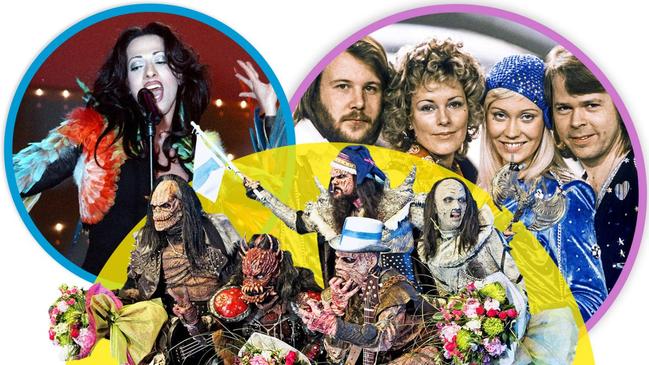
With Liverpool hosting the competition as a gesture of solidarity with last year’s winners Ukraine after Sam Ryder offered UK’s best entry in years and came second with Space Man, Eurovision is big news once more.
Frankie Goes to Hollywood reunited at an opening concert (for one song only, Welcome to the Pleasuredome), Mae Muller’s perfectly likeable but less than remarkable I Wrote a Song will ensure the UK won’t carry the cost of hosting the competition two years running, and Sweden’s Loreen is the favourite to win with her Cher-like power ballad Tattoo. Time, then, to take a look at the years when Eurovision, Europe’s silliest song festival, got serious.
10. Salvador Sobral pulls on the world’s heartstrings, 2017
When Portugal’s Sobral sang Amar Pelos Dois, a tender ballad with languid bossa nova charm, it was awarded 758 points, the highest score in the history of the competition. He looked remarkably casual as the votes came in, not jumping with joy as most of the winners understandably do.
Only afterwards was it revealed that he had a weak heart and could die at any minute. “It is time to hand over my body to science,” announced Sobral in September 2017, three months before undergoing heart transplant surgery. Since then he has followed orders from doctors to approach life as he approaches music: quietly.
9. Verka Serduchka’s space glam explosion upsets and delights Ukraine, 2007
Looking like Christopher Biggins on a mission to Mars, Andriy Danylko, the Ukrainian comedian better known under his stage name Verka Serduchka, took Eurovision kitsch to its climax with Dancing Lasha Tumbai, a novelty tune that put an accordion melody against a tinny electronic beat and nonsense words sung in German, Russian, Ukrainian and English.
Criticised by Ukrainian politicians across parties for making the country a potential laughing stock, Danylko has since become a national hero, remaining in Kyiv after the invasion and performing the Eurovision song at fundraisers where it has become an anthem of resistance under the new title of Dancing Russia Goodbye.
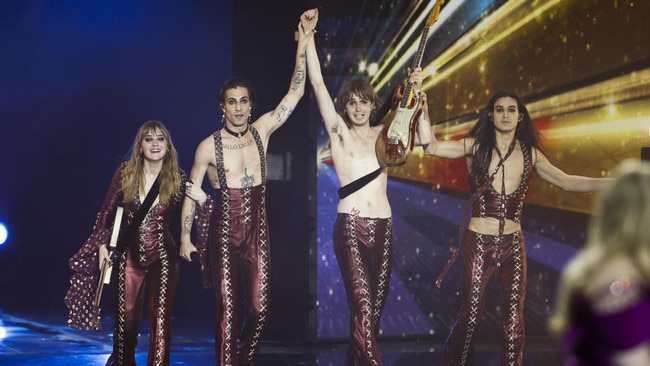
8. Maneskin may or may not have done something bad, 2021
When dissolute rock bands like Led Zeppelin or the Rolling Stones took drugs, they were simply doing what was expected of them. On a family show like Eurovision it is another matter, which is why there was an outcry when Damiano David of Italy’s winners Maneskin appeared to be caught on camera indulging in a bit of chemical refreshment. He denied it of course, but for a band batting away accusations of being lip-synching poseurs it actually did them a favour in the long run. This year you’ll find Maneskin at Glastonbury festival, home of credible artists everywhere.
7. Russian grannies get dancing, 2012
As the war in Ukraine shows no sign of ending soon, it is important to remember that before Putin’s disastrous invasion Russia was actually quite integrated into European pop culture. Buranovskiye Babushki went down a storm with Party for Everybody: six elderly women dressed in traditional village garb, pretending to do some baking before breaking out into a singalong Euro disco floor-filler. It only got to second place but has stayed in the hearts and minds of the Eurovision faithful ever since, not least as a reminder of more innocent times.
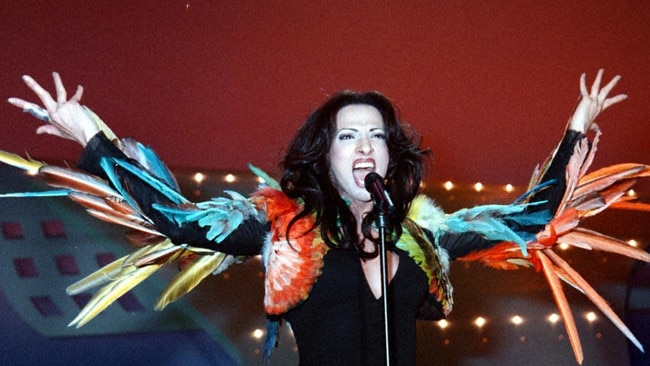
6. Dana International becomes first trans winner, 1998
Long before trans identity became such a divisive debate, Eurovision proved it was way ahead of the game by crowning Dana International its first transgender winner. And deservedly so: Diva was high drama disco in the Barbra Streisand/Celine Dion mould, performed with great elegance by a singer who gave her heart to the performance. She went on to represent Israel again in 2011 and co-wrote the country’s entry in 2008, although her original inclusion led to street protests by Orthodox Jewish groups and to death threats after her win.
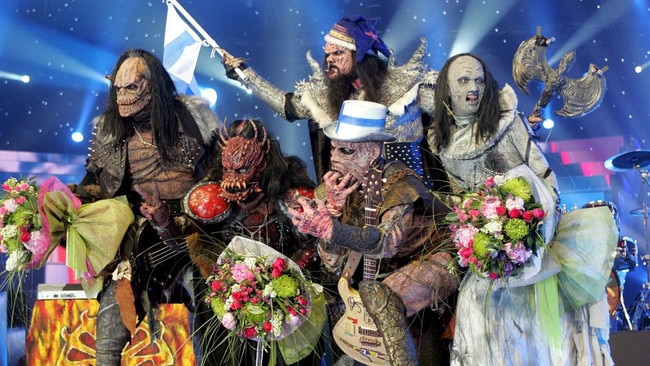
5. Lordi up-end pop’s traditional dominance, 2006
In one of the most stunning upsets to the natural order of Eurovision as the world’s most poptastic singing festival, this Finnish heavy metal group growled their way to glory with Hard Rock Hallelujah, an (admittedly rather catchy) onslaught of pounding drums, squealing guitars and warnings about the oncoming rockopalypse. That they did it while looking like Freddy Krueger’s long-lost relatives, terrifying children around the world in the process, was quite an achievement.
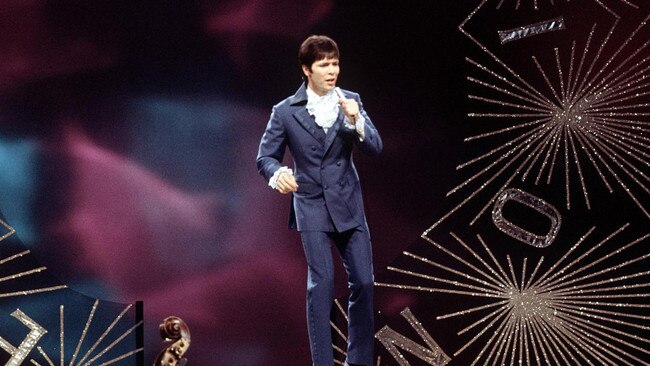
4. Cliff Richard is denied No. 1 spot, 1968
Cliff Richard, the inoffensive Christian pop sensation, was pulled into the politics of Eurovision after his 1968 entry Congratulations was denied the top spot due to vote rigging by the dictator Franco, who sent corrupt television executives across Europe to buy votes for the Spanish entry, Massiel’s melodramatic La La La. That wasn’t Eurovision’s only moment of political drama. When Ireland hosted in 1971, Northern Ireland’s Clodagh Rodgers was chosen as the UK’s representative with a view of how that selection would be received in the host country during a heightened period for the Troubles. “Here I am, a good little Catholic girl representing the United Kingdom in Dublin,” Rodgers said. It didn’t stop her from receiving death threats from the IRA, who perceived Rodgers as a traitor for singing the perky Jack in the Box in sparkling pink hotpants in the name of the UK.
3. Iceland cheers us all up, 2020
With an easily copyable dance routine, a super catchy tune, a groovy Eighties synth-pop sound and some nice green matching jumpers, Dadi Freyr and Gagnamagnid’s Think About Things was the perfect Eurovision song, delivered with just the right touch of deadpan irony. “I wrote the song and put together the choreography, outfits, everything, for one reason: to win Eurovision,” Freyr said. “For example you can’t play instruments during your performance, so we got fake computer instruments that look like guitars. I had the jumpers made and we wanted them to be in a colour that most people might consider ugly, but not Eurovision people. The dance routines, even the moment in the performance where a wind machine blows my hair, were based on past Eurovision performances. I wanted to put in as many Eurovision cliches as possible, but without making fun of the show. You have to love it if you are going to enter it.” The song was denied the full douze points as the event was cancelled due to the pandemic, but everyone knew it was that year’s winner.
2. Kalush Orchestra achieve pop victory, 2022
“The field is blooming but her hair is getting grey,” sang their frontman, Oleh Psiuk, on Stefania, a song that was chosen to represent Ukraine two days before Russia’s full-scale invasion. With traditional folk balladry combined with a touch of bad boy rap, Stefania became a song of Ukrainian pride in its culture and history. It was always going to be the popular favourite due to pan-European solidarity with Ukraine, but the ultra-catchy refrain, the jaunty flute solo and the heartfelt words honouring a wonderful mum helped it to go down a storm with voters and judges alike.
1. Abba are launched on the world stage, 1974
“Nul points from Britain,” remembers Bjorn Ulvaeus of Abba, who won with the T. Rex-influenced Waterloo despite the best efforts of the host country to make sure they didn’t. “Britain wanted [its own entry] Olivia Newton-John to win. It is almost impossible that none of them would give us a point, but it also didn’t matter because Waterloo was fun and lively and our thought was: they will remember us. We will dress up in strange outfits, and even if we come in at No 9 they will remember us.”
Prior to that golden moment Abba had been a Swedish success but not an international one, with the country being associated in the early seventies chiefly with sexual liberation, not pop music.
“Nobody in the English-speaking world would release our debut single, People Need Love,” Ulvaeus says. “It went straight into the garbage because nobody released anything Swedish. Promiscuity and pretty girls, sure, but bands? No, we don’t want that. The only ones who would release it in America were Playboy Records. Without telling us, they released the single as Bjorn and Benny with Svenska Flicka.”
Svenksa Flicka translates roughly as “pretty Swedish girl”. He adds: “We were so pissed off.” But Abba had the last laugh: Waterloo turned a rather dowdy singing contest into a mainstream fixture. “It changed Eurovision forever,” Ulvaeus says. And he’s right.
The Times



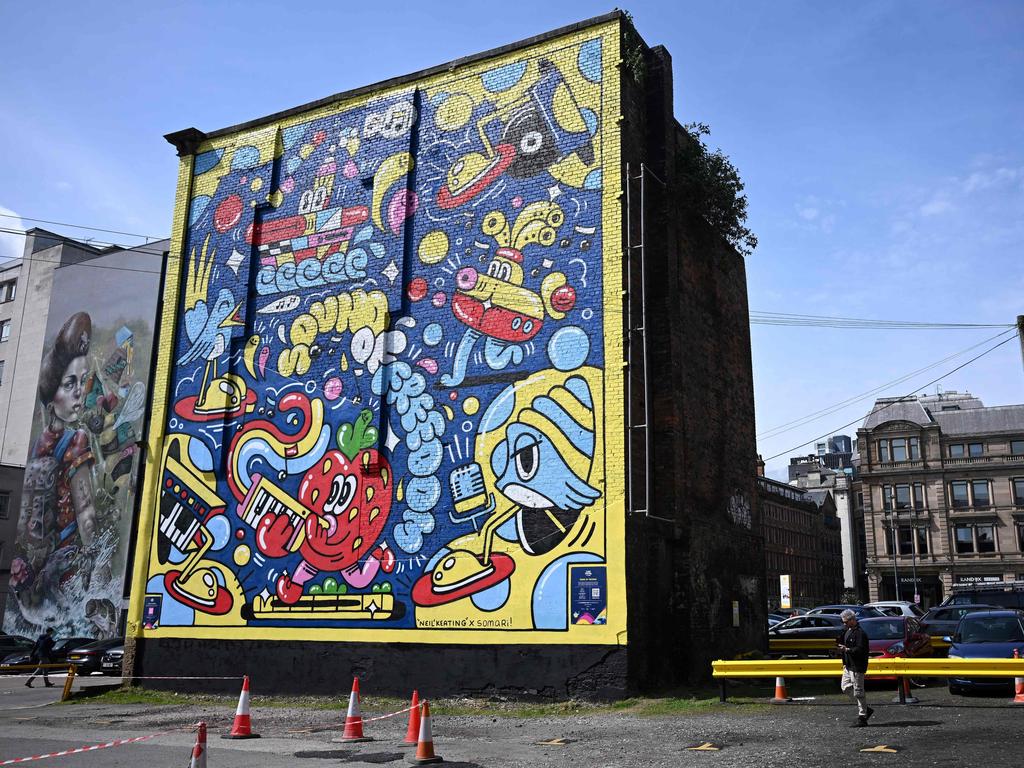
To join the conversation, please log in. Don't have an account? Register
Join the conversation, you are commenting as Logout